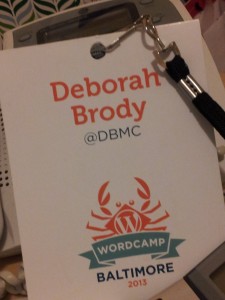One action that guarantees social media success
Yesterday, an acquaintance posted a picture of an elaborate, girly birthday cake she had made for her daughter’s birthday. She had written “Happy 4th Birthday to my baby” as a caption. I commented saying “Beautiful cake! How old is she?” Someone, let’s call her Jane, wrote back “ummmm Deborah. She’s 4.” I then looked at the post and realized that it indeed said the little girl had turned four. I was focused one the picture and my eyes just skipped the “4th” and read happy birthday to my baby.” So I responded: “Sorry Jane. I was looking at the picture. Excuse my stupidity.” To which Jane (someone I don’t know and who doesn’t know me): “I know. I just couldn’t resist. It just struck me as so funny!”
Now I don’t know Jane, but it was pretty obvious that she was trying to make fun of me, a stranger, in front of our mutual acquaintance and all of her friends. If she had stopped for just a couple of seconds and asked herself if the comment was necessary, she may have opted to skip it. People reading it would have realized I didn’t read the caption correctly or they would have ignored it.
This is pretty mild stuff, I know. But people routinely post stuff quickly and with little thought to the consequence. For a “heavier” example, there’s the Virginia politician who posted on his Facebook page that pregnant women are simply “hosts” for the baby. He did this to defend his viewpoint that abortion should be illegal. When people criticized him, he redacted the comment, but not before it made news as far away as England, as this article in the Daily Mail shows.
Social media allows people to engage in real-time conversation, but unlike in-person spoken conversation, social media posts are public, searchable and in many cases, permanent.
In person, we can say something dumb or insensitive, and then move on. Perhaps we apologize or explain ourselves. The comments we make are not visible to anybody else outside our conversation (unless perhaps they are recorded, and you don’t know it, in which case you may have bigger problems than just saying something stupid).
In social media, we have the illusion that we are having an intimate conversation with one person or a group, but in reality, we are making our thoughts completely public.
Before we post ANYTHING to social media, we should stop and ask ourselves: Is this really necessary? Does this comment have the capacity to offend? How will people perceive this comment?
Now, I am not advocating that you spend all day deciding whether to say something on social media nor am I saying you need to edit and approve every uttering. That would be counterproductive. You should simply take a moment and think about what you are saying.
On Monday, Brad Phillips wrote a post called “No Word Was Ever as Effective As A Rightly Timed Pause,” on his Mr. Media Training blog. His argument is that a pause in conversation has two main effects. One is to give the person who is pausing a moment to pull his/her thoughts together instead of blurting out whatever comes to mind. The second is to give the listener the impression that the person is confident enough to pause, and thoughtful enough to give a well-reasoned response.
So next time to you are going to write a comment on Facebook, respond to someone on Twitter or even compose a blog post, PAUSE and think about what you are doing.
In the DC area and interested in improving your blogging skills? Attend the next How to Write Your Blog workshop on April 1. Details and registration are available on Eventbrite.
About Deborah Brody
Deborah Brody writes and edits anything related to marketing communications. Most blog posts are written under the influence of caffeine.








